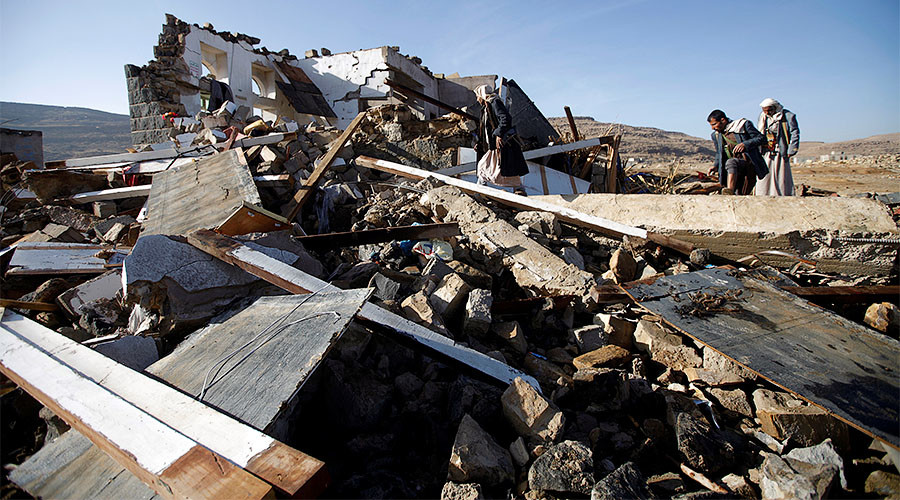
Dhaka, Bangladesh – Millions of Bangladeshis headed to the polls on Sunday to elect a new parliament amid concerns from rights groups over a “restrictive electoral environment”.
Polling stations opened at 8am local time (02:00 GMT) and are expected to close at 4pm (10:00 GMT). Counting will begin at the more than 40,000 centres soon afterwards.
Prime Minister Sheikh Hasina, who is seeking a third straight term in power, cast her ballot in the capital, Dhaka.
“We believe in democracy and we will accept the people’s mandate,” Hasina said.
More than 104 million people are registered to vote in the country’s 11th general election to choose 299 representatives to parliament, known as the Jatiya Sangsad. Voting in one constituency was suspended due to the death of a candidate.
A total of 1,841 candidates from the Grand Alliance, led by the ruling Awami League (AL) party, and the opposition alliance, led by the Bangladesh Nationalist Party (BNP), are competing in the elections, which have been marred by violence and allegations of intimidation.
Around 600,000 security personnel, including soldiers, have been deployed across the country in a bid to contain the violence.
The internet has been completely shut down until midnight of Sunday to prevent “rumours”, the Daily Star reported.
Electronic voting machines (EVMs) will be used for the first time in select constituencies.
Chief Election Commissioner (CEC) KM Nurul Huda on Saturday asked the law enforcing agencies to act with an iron fist to check violence.
“If we find any negligence or insincerity during poll-time duty, we will take legal action against them after investigation,” the CEC said during a press conference at the Nirbachan Bhaban (CEC office) in the capital, Dhaka.
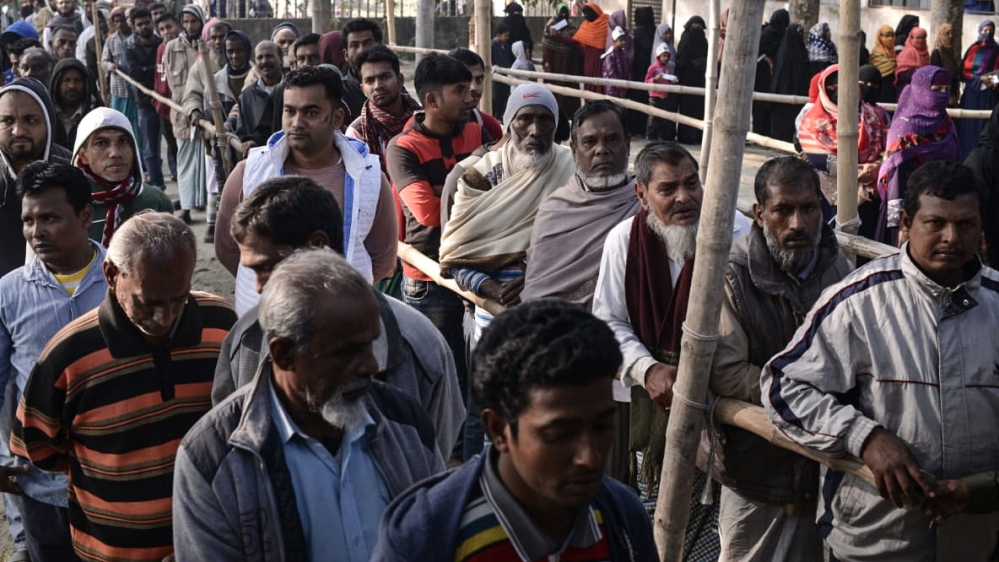 |
| Voters queue at a voting center during the general election in Dhaka [Mahmud Hossain Opu/Al Jazeera] |
Rights groups slam government
Rights organisations have criticised the government for “cracking down on civil society, the opposition and the media”.
A statement issued by 16 human rights organisations, including Asian Human Rights Commission and Asian Network for Free Elections (ANFREL), said on Saturday that at least five persons have been killed and 2,682 others injured in election-related violence since December 10.
“These attacks are meant to instil fear in the minds of Bangladeshi voters, and thus undermining the prospects of a level electoral playing field,” the rights bodies said.
Commonwealth Secretary-General Patricia Scotland also urged Bangladesh to conduct “free, fair, inclusive and participatory” elections.
Golam Mawla Rony, a BNP candidate in the polls, said he was confined to his house because the ruling party members would not let him go out.
Rony, who is running from Patuakhali 3 constituency in the country’s south, said he was attacked on Friday by AL members when he ventured out for prayers.
“One hundred of my supporters have been arrested. Police and Awami League people are going from house to house and threatening BNP supporters to not come out on Sunday to vote,” Rony told Al Jazeera over the phone.
“The situation is terrifying. I could never imagine that such a situation can exist during an election,” Rony said.
Al Jazeera reached out to police to seek their response, but could not receive a reply until the time of publication.
 |
| Bangladesh Prime Minister Sheikh Hasina speaks to the media persons after casting her vote in Dhaka [Anupam Nath/AP Photo] |
Allegations ‘exaggerated’
Gowher Rizvi, the international affairs adviser to Prime Minister Hasina, said the opposition’s claims of police harassment and restrictions on their movement are “exaggerated”.
“A lot of these things are exaggerated. It’s despicable; it’s really worrying that there is violence. But if you look at the last seven days, seven people have been killed – all from Awami League. This is real violence, people have lost their lives,” he told Al Jazeera.
He asked the media to investigate the veracity of these claims.
“Yes there are some isolated incidents, I have no doubt. It has happened in the past, it’s happening now. But do not accept it without corroboration,” he said.
Afsan Chowdhury, a political analyst and journalist, said, “We haven’t had such a conflict-ridden election before.”
“This election has the highest stake ever. I have not seen an election, which is so intense,” he said.
“The political parties don’t see each other as political rivals. They look upon each other as enemies,” he added.
“Interestingly, this is the first election under a civilian government in 18 years, since the 2008 election was under martial law and the 2014 election was boycotted by the opposition.”
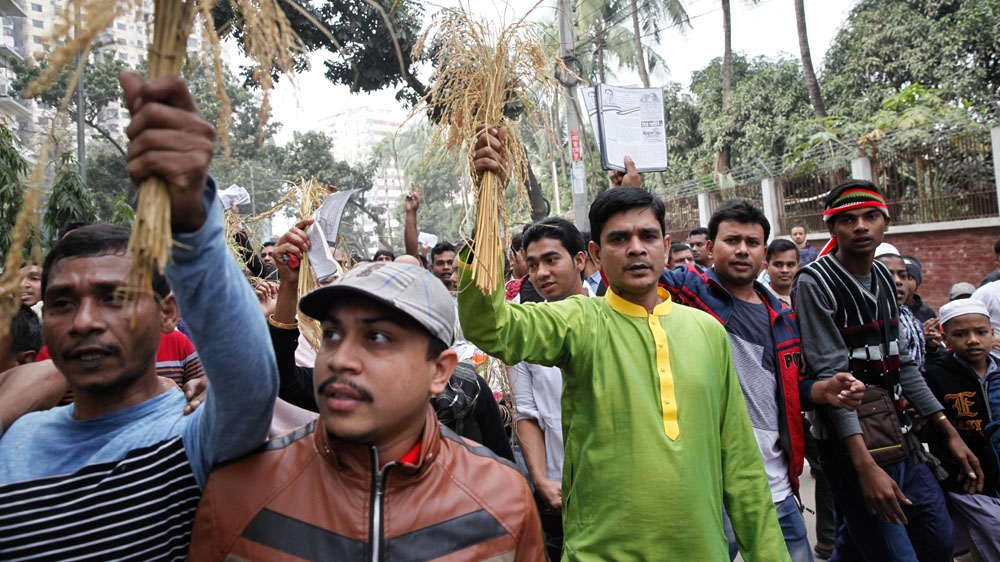 |
| Opposition BNP has alleged intimidation by the government [Mahmud Hossain Opu/Al Jazeera] |
Hasina’s contentious rule
Prime Minister Hasina, who has become the South Asian nation’s longest-ruling leader, is seeking re-election on the back of high economic growth during her 10-year rule.
“I request the voters to cast their votes… All the people will have to watch out so that no one can make the elections questionable in any way,” Hasina was quoted as saying by the Daily Star.
Hasina has led the ruling AL party, founded by her father, Sheikh Mujibur Rahman, the country’s founding leader, since 1981.
She has been globally hailed for her handling of the Rohingya crisis last year, when about one million Muslim minority sought refuge in Bangladesh fleeing a military offensive in Myanmar.
Her tenure also saw the beginning of the controversial War Crimes Tribunal trial against those involved in atrocities committed during the country’s liberation war against Pakistan in 1971.
AL’s Joint General Secretary Mahbubul Alam Hanif highlighted the record economic growth the nation of 160 million witnessed in the past 10 years.
“Economic growth increased from 5.57 percent to 7.28 percent. Per capita income increased from $500 to nearly $1,800 now. Export income increased from $16bn to $35bn,” Hanif said.
Professor Chowdhury, who teaches at BRAC University, said, “Hasina’s achievements are quite extensive.”
“Nobody has achieved as much as she has done. She has carried out socioeconomic development,” he said. “The lower class has benefited most under her. This is her great power base and that has not changed.”
“BNP’s support base is those that are unhappy with the Awami League. It is the anti-incumbency party. It does not have its own support base. Not a significant one,” he said.
The opposition fight was no match to the high-decibel campaign led by the ruling AL party in the absence of the BNP leader and former Prime Minister, Khaleda Zia, who is serving a 17-year jail term for corruption.
Her BNP party forged an alliance, Jatiya Oikya Front (National Unity Front), with a former Hasina ally and a well-respected jurist, Kamal Hossain, to mount a challenge to the prime minister.
On the eve of the elections, Hossain called on his supporters not to be intimidated by threats.
“Vote tomorrow. Don’t let them intimidate you. Evil forces will flee before you. They can’t fight people’s strength,” said Hossain, convener of the Jatiya Oikya Front.
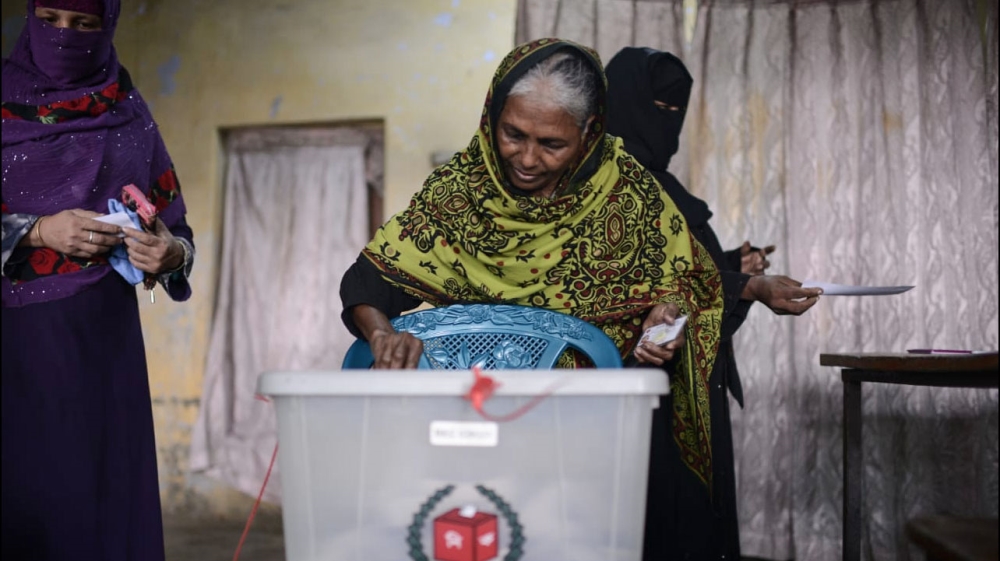 |
|
A woman casts her vote during the general election in Dhaka, Bangladesh [Mahmud Hossain Opu/Al Jazeera] |
Jobs major agenda for youth
Employment will be a big agenda on the minds of the young voters, who form nearly one-fifth of the registered voters. The youth joblessness stands at 11 percent as compared with the overall unemployment rate of 4 percent.
Earlier this year, thousands of students hit the streets against government quota in jobs. The government was forced to agree to their demands.
“There has been an abuse of power by the police and Awami League leaders at the grassroots level,” said Ismail Zaman, a BNP supporter whose name has been changed on his request.
But Mohammad Yusuf, a student of Jahangir University and an AL supporter, disagrees.
“The big achievements of Sheikh Hasina have been poverty reduction, no corruption in appointments in government jobs and most notably, humane treatment of the Rohingya refugees.”
Additional reporting by Saqib Sarker from Dhaka
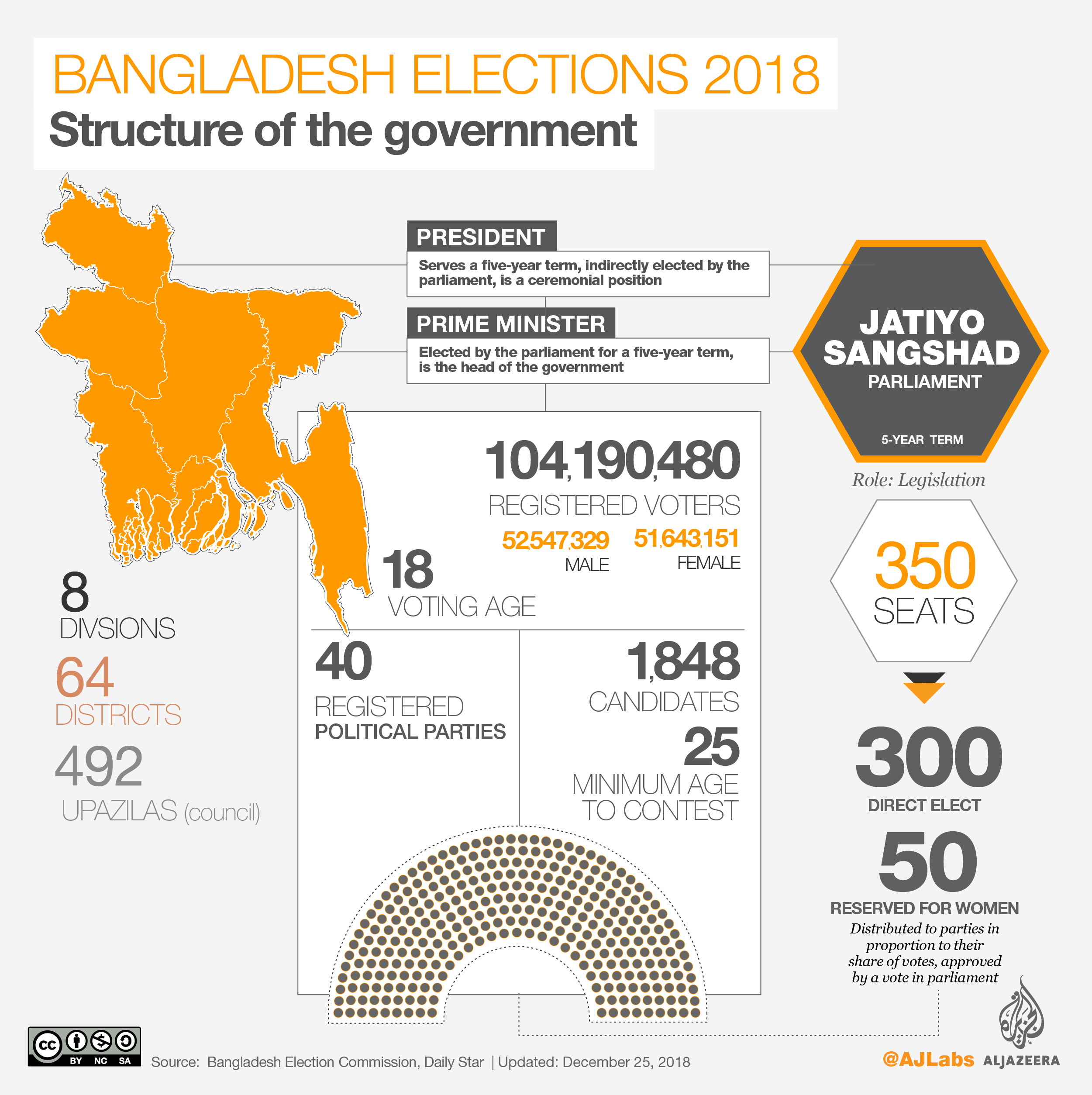 |
| INTERACTIVE: Understanding Bangladesh elections 2018 [Al Jazeera] |




